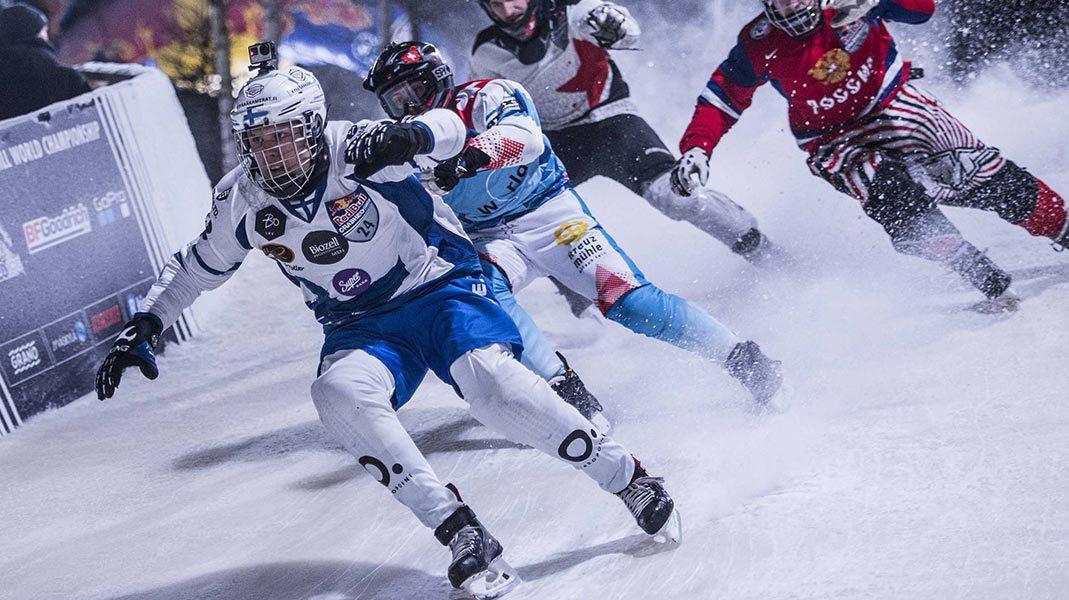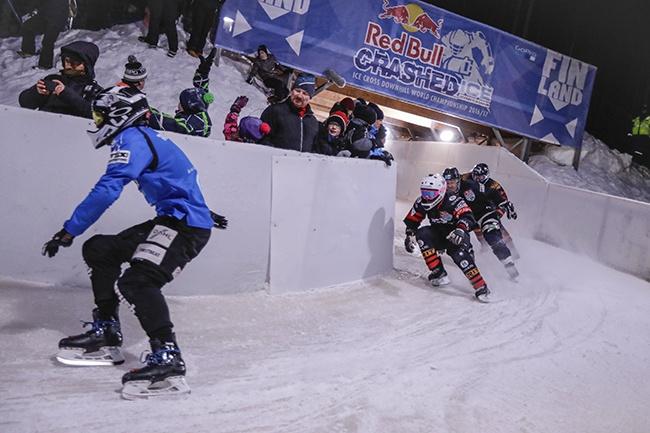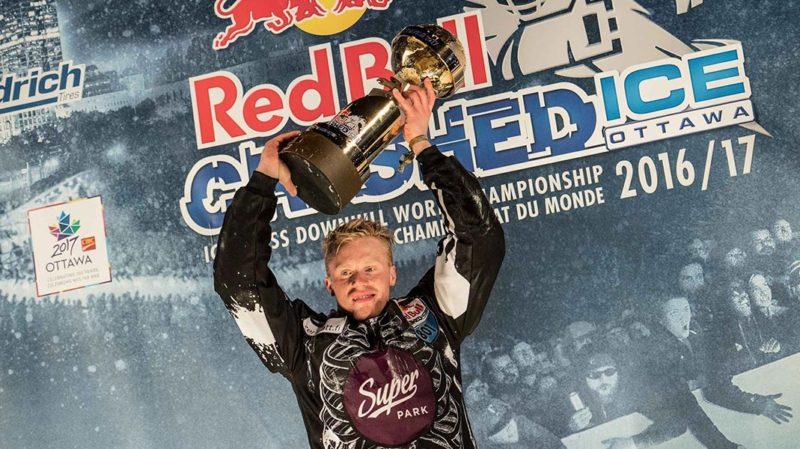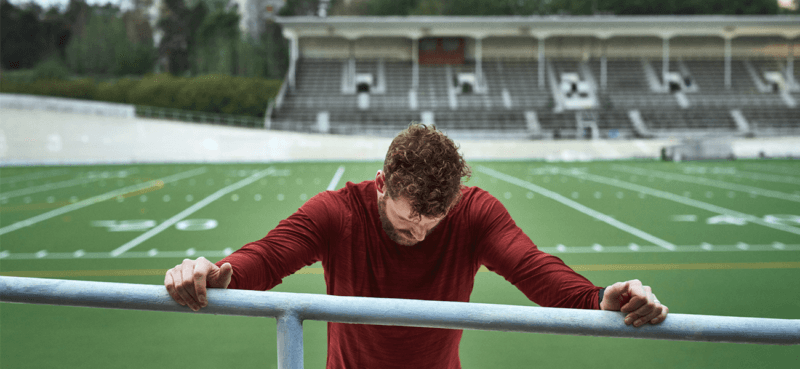
Downhill gives no mercy – in Red Bull Crashed Ice competition first come, first served. The race starts from a gate, but getting prepared takes the entire season.
There is a big difference between the good and the best. Climbing to the top of the ranking table requires a lot of hard work, the right kinds of training offset by equal amounts of recovery, and most of all, careful preparation.
Finnish skater Antti Tolvanen races among the best ice cross downhill skaters in the world, in the Red Bull Crashed Ice series. His 2017 season got off to a quick start with the series opening event in Marseille. “I didn’t make this trip to chill out,” he says, talking about his pre-race ambitions after the race. “I thought the race went well, but I was a bit tired before the event on Saturday, because getting prepared took a lot of time and energy.”
The closer the race day gets, the more alert we become, which explains the tingling sensation of anticipation as the competition approaches. In that heightened state of alertness, there is less room for recovery. The need for successful recovery makes it essential to remove unnecessary distractions, so that it’s possible to focus on the essential performance. Flashing lights and big crowds create external pressures that only add to the athlete’s stress loads. In those moments, you have to focus on what got you there in the first place.
Despite feeling tired early on, Tolvanen was able to shake off his sluggish feelings before his race in Marseille. “I was rocking and felt like dynamite, both physically and mentally before the start,” he recounts. His mental preparation continued all the way the starting gate. “I growled and talked to myself, banged my chest, and jumped in the air,” Tolvanen recounts. While specifics vary from athlete to athlete, familiar routines help create a sense of security that contribute to positive results.
Tolvanen’s podium dreams in Marseille ended abruptly on the homestretch of his qualification race with a dash of controversy. A trailing competitor’s arm collided with Tolvanen’s left leg during a short uphill portion of the track near the finish. The bump was deemed incidental by the race judges, but was sufficient to put Tolvanen off balance and out finals contention; a valuable lesson that even with careful preparation, not everything can be predicted.

Antti Tolvanen leading in Jyväskylä, Finland. Photo: Daniel Grund/Red Bull Content Pool
The ice cross downhill season is tight and action packed. Competitions come quickly, one after the other. And traveling from one host country to the next brings it’s own set of challenges, since there is little time for breaks. When competition day arrives, peak performance capacity is a must. It is crucial for athletes to focus on maximizing the physical potential they worked to develop during training.
The human body produces a remarkable amount of information if you know how to look. With the right tools you can gain valuable insight into training and recovery. Firstbeat’s ability to analyze heart rate and heart rate variability has provided Tolvanen with training load and recovery data that has been vital to his training efforts. “My physical and mental conditioning was rock solid leading up to the race in Marseille. I started the competition filled with energy,” he recounts.
Firstbeat’s analytics also provide insight into night-time recovery issues, as Miikka Jouhkimainen, another racer in the Red Bull Crashed Ice series explains: “I sleep a lot better these days. Firstbeat has helped me to monitor the quality of my sleep, and I can see when I should train and when I shouldn’t.”
Ice cross downhill is a fast but subtle sport, so a racer’s mental game needs to be in top shape before stepping onto the starting line. A healthy attitude and self-confidence are needed to keep distractions and disappointments from spiraling into disaster. In his post race analysis, Tolvanen displays how setbacks can be turned into positive energy. “My upset in the Marseille race stuck in my craw, because I was so close to finishing in the top-16 for the first time. I’m going to be really hungry and a little irritated going into the next race in Jyväskylä.”
At the highest level of competition in any sport, the difference between winners and losers comes down to the smallest of margins. A fine line exists. Tolvanen used to be a little awestruck by the best skaters in the world, but those days are past. “If my skate is awesome, I know I can beat anyone,” he concludes.
Header photo: Andreas Schaad / Red Bull Content Pool
If you liked this article, you should subscribe to our mailing list
You might also be interested in

Red Bull Crashed Ice Junior World Winner Mirko Lahti Aims to Renew His Championship
The season of the world’s fastest sport on skates went as quickly as the riders on the track, but the speedy competitors have already got their hands full preparing for the start of next season. We chatted with Mirko Lahti, the recently crowned 20-year-old Junior World Championship.

3 Types of Psychological Stress Affecting Athletes In-season
What exactly are these stressors and how can coaches and athletes identify them in order to adjust and, ultimately, limit the negative impact they can have?


